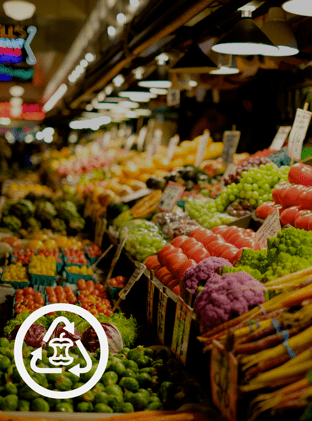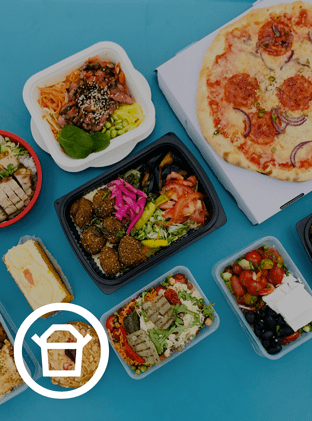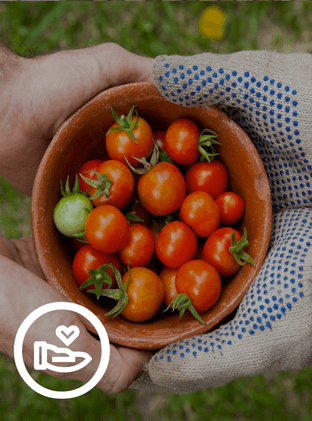Sign up for free
Create your restaurant listing in minutes.
Know your foodprint
Our goal is a thriving, sustainable food service industry. We want to help people find eco-friendlier options when they're dining out, and we also want to spread the word about restaurants leading the way toward greener operations through our partners.
EcoMeter makes it easy for you to connect with a range of zero-waste partners, so you can make more sustainable choices, remain competitive in a changing landscape, and drive more business.
Sign up for free
Create your restaurant listing in minutes.
Connect with new customers
Show climate-conscious diners what you're doing.
Build community
Help create a sustainable dining movement.
Show diners your green side. Showcase how you're working with EcoMeter's expert partners and discover new ones to improve your sustainability practices and reduce operating costs.
We look at four categories to evaluate restaurants and determine where they land on the EcoMeter. Each category has different partners linked to it. When a restaurant starts working with one of the partners in the categories, it boosts their EcoMeter rating.
How we score:
Food waste
One-third of all food produced globally is wasted. Show customers you're wasting less and helping the planet.
Takeout packaging
Eco-friendly takeout packaging is here, and your customers are increasingly expecting it.
Supply chain
Your menu and ingredients matter. Help customers see the smart suppliers you're using.
Community initiatives
You're an important part of the neighborhood. Show your commitment to your community.

Food waste
The world has a food waste problem – but we also have food waste solutions.
In Canada, 58% of food produced is wasted from farm to plate (source) and $49 billion worth of food is sent to the landfill or composed each year (source). Food waste goes way beyond tossing out a wilted bunch of cilantro from the fridge – it’s everything in our supply chain that doesn’t get eaten or diverted because it’s spoiled, expired or discarded. Along with being wasteful and contributing to greenhouse gas, it’s a waste of money for restaurants and consumers.
Local groups and restaurants are doing fantastic work making sure more food gets eaten instead of tossed. EcoMeter partners are finding ways to track food waste, sell perfectly good surplus food, or donate extra food to non-profit groups.

Takeout packaging
A tough number to swallow: in 2018, about 82 million single-use cups were thrown in the garbage in Vancouver (source). Coffee cups are a common culprit, but it’s also plastic utensils and containers. While many takeout containers claim to be recyclable, 86% of them end up in landfills (source). There’s got to be a better way, right?
Vancouver-based groups are building zero-waste solutions like container sharing, washing services for reusables, and plastic footprint tracking. You can jump on board to minimize single-use plastic use by choosing restaurants and partners that offer reusable takeout packaging.

Supply chain
For EcoMeter, supply chain connects the entire food experience from farm (or ocean) to fork. It has a massive impact on emissions and carbon footprint, and includes everything from product sourcing to how the food ends up at your front door.
A lot of restaurants are doing great work to minimize their foodprint. In our supply chain rating, EcoMeter recognizes vegan and vegetarian options, local sourcing, and waste diversion practices. We all know how much better a fresh tomato plucked in your backyard tastes compared to one shipped halfway across the world, plus it has a heck of a lot less impact in getting to you.

Community initiatives
Good food, good people. In the Vancouver dining scene, there’s a ton of people finding solutions to tricky sustainability issues and creating real change. Do you know a community group we should connect with to add to our list of partners? Loop us in.
We can connect restaurants with ways to donate surplus food so it doesn’t go to waste. Our partners can also help restaurants do a deep dive into their business to make changes, spread the word about the threat of marine pollution, launch single-use plastic reduction initiatives, and offer free zero-waste coaching to small businesses.